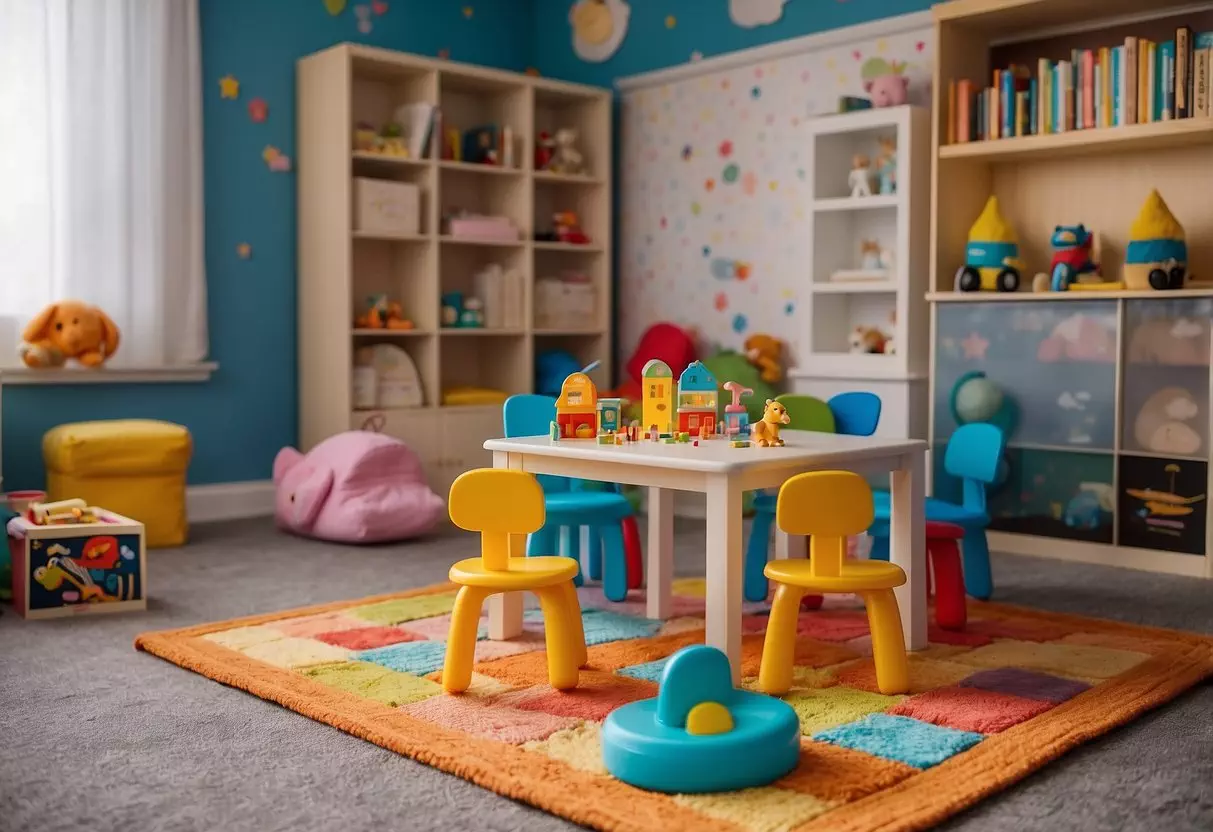Is My 14 Month Old a Toddler? Understanding Early Childhood Stages
At 14 months old, your little one has officially entered the toddler stage. The transition from baby to toddler comes with many changes and exciting milestones. It’s a time when your child starts to become more independent, exploring the world around them with newfound curiosity and confidence.

You might notice your 14-month-old’s physical growth and development in areas such as walking and running or attempting their first steps. Language skills are also starting to develop, and you may hear new words and sounds as they express themselves. Check out BabyCenter for more details on what to expect.
Each day brings new challenges and triumphs, making life with a toddler both rewarding and occasionally overwhelming. Whether it’s dealing with separation anxiety or managing diaper changes on the go, your experiences during this time are what bond you closer. Learn more about these daily adventures at Today’s Parent.
Table of Contents
Understanding Toddler Development

When your child turns 14 months old, they venture into the toddler phase, marked by rapid growth and a flurry of newfound skills.
Growth and Physical Changes
At 14 months, toddlers typically weigh between 20 to 28 pounds if they are boys and 16 to 27 pounds if they are girls. They generally measure about 29 to 33 inches tall for boys and 28 to 32½ inches tall for girls.
Their walking skills may vary greatly. Some might be practically running, while others may still be taking wobbly first steps. Their balance and coordination are still developing so expect plenty of tumbles.
These falls are normal and can be a crucial part of learning. Watch your reaction to minor falls; toddlers often take cues from you on how to react.
Cognitive and Language Skills
Your toddler is in an exciting phase of cognitive and language development. At this stage, they might begin using gestures and simple words to communicate. It’s common for 14-month-olds to start picking up new words and might even use 1 to 2-word sentences.
You may notice them exploring their environment more, showing curiosity about how things work. They start to recognize the names of familiar people and objects and may follow simple instructions.
Language acquisition is still in its early stages, but the foundation for future language skills is being built now.
Emotional Development and Socialization
Emotionally, a 14-month-old is beginning to show early signs of social skills. They may not fully understand that others have feelings, but they will often pause and watch reactions if they cause a friend to cry.
Separation anxiety can be strong at this age. Your toddler may be very attached to you and may cry when you leave.
As they grow, they will begin to show empathy and concern for others. Socialization involves more interaction with peers, which helps build confidence and assertiveness. Encouraging playdates can be beneficial, as your child learns to navigate social norms and develop better social skills.
Health and Nutrition

Your 14-month-old toddler is growing and changing rapidly, and their health and nutrition are crucial during this period. You’ll need to pay attention to their changing appetite, ensure they get essential nutrients, and address common health concerns.
Feeding and Appetite Changes
At 14 months, your toddler’s appetite can be unpredictable. Some days they may eat a lot, and other days, not much at all. Offer small, frequent meals and snacks to match their natural eating patterns. Introduce whole milk if they’ve been weaned from breast milk or formula. Allow them to practice self-feeding with soft foods and finger foods.
During teething, they might be fussier with meals. Cold foods like yogurt can be soothing. Be patient with their food choices and encourage them to try new foods without pressure.
Essential Nutrients and Supplements
Your toddler needs a balanced diet that includes important nutrients such as fats, calcium, and vitamins. Dairy products like milk, cheese, and yogurt are key sources of calcium needed for strong bones and teeth. Whole milk provides fats necessary for brain development.
Include a variety of fruits, vegetables, grains, and protein sources. If you’re concerned about their diet, consult your pediatrician about supplements, particularly for vitamins D and iron. These nutrients are vital but can sometimes be lacking in a toddler’s diet.
Dealing with Common Health Concerns
Being 14 months old, your toddler might experience common health issues like teething, tantrums, and sleep disruptions. Teething can cause discomfort, so offer teething rings and cold foods to soothe their gums.
Tantrums are also common as they seek independence. Stay calm, and try to distract or redirect their attention. Ensure they get enough sleep, as tired toddlers are more prone to tantrums.
Aggressive behavior can surface at this age. Teach gentle touch and praise good behavior. Consistent routines for meals, snacks, and sleep can help stabilize their mood and health. Regular check-ups with the pediatrician are crucial to monitor their growth and development.
Effective Parenting Techniques

At 14 months old, your child is exploring their independence but still needs guidance. Here’s how you can establish routines, encourage independence, and handle challenging behaviors effectively.
Establishing Routines and Limits
Setting up a consistent daily routine helps your child know what to expect. Regular meal times, naps, and bedtime create a sense of security. Use a simple schedule and stick to it as best as you can.
Limits are essential. Clear and consistent boundaries help your child understand acceptable behavior. For example, if they bite, calmly say “No biting,” and redirect them to a toy. Practice patience and consistency, and avoid corporal punishment like spanking. Simple, firm instructions work best.
Try creating a visual schedule using images to represent daily activities. This can help your child learn routines even if they can’t read yet.
Encouraging Independence and Play
Encouraging your child’s independence is crucial at this age. Let them choose between two outfits or pick a snack from healthy options. This fosters decision-making skills and self-confidence.
Play is vital for development. Create a safe play area where your child can explore different toys and activities. Offer a mix of physical, creative, and educational toys. Activities for 14-month-olds include stacking blocks, simple puzzles, and playing with musical toys.
Support their curiosity but be mindful of safety. Supervise play while giving them the freedom to try new things. Praise their efforts to build self-esteem.
Handling Challenging Behaviors
Handling challenging behaviors like tantrums, hitting, and biting requires consistency and calm. When your child displays aggressive behavior, such as hitting, respond with a firm “No hitting,” and remove them from the situation.
In moments of stubbornness or power struggles, offer choices that direct your child towards positive actions. For instance, if they resist bath time, let them choose the toy they can bring.
Be patient and stay composed to show your child that frustration can be managed without aggression. Practice consistent discipline techniques and avoid physical punishment to teach your child how to regulate their emotions healthily.
